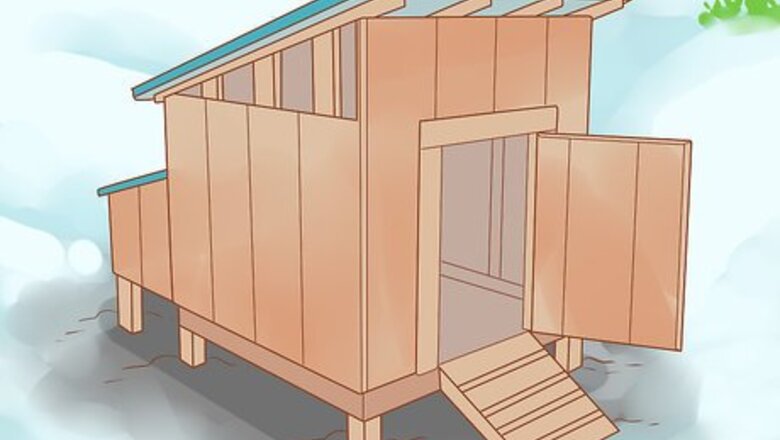
views
Providing the Right Environment
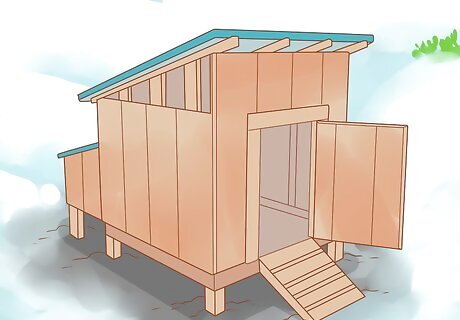
Provide a big enough house for your ducks. Ducks benefit from outdoor housing. In the winter especially, work on having a warm outdoor shelter for your ducks. Your ducks will need a small wooden shed or shelter. Make sure the shelter you install is big enough for all your ducks to live comfortably. As a general rule, opt for two square feet per duck. For example, if you are housing four ducks, your house should be eight square feet. Make sure your house has walls and a ceiling. In the winter, ducks need more than just a pen for health and safety.
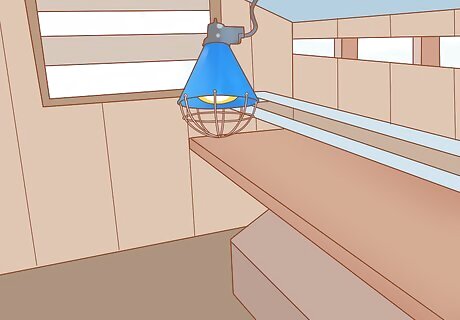
Heat your duck's environment to keep them warm. In general, ducks are pretty good at regulating their body heat in the cold. However, your ducks will be more comfortable if you opt for heating in the shelter. This is particularly important if you're housing ducklings over the winter. Use heated lamps, kept out of your duck's reach, in order to heat your shelter. Do not use anything that goes on the floor, like a space heater. Such items are a fire hazard. If you have ducklings over the winter, use a 250 watt lamp for your duck house.
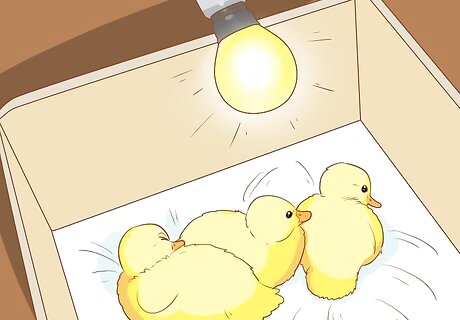
Install proper lighting in the shelter. If you're concerned about egg production, lighting is key. If you're trying to breed your ducks, or are using them for eggs, artificial light is necessary in the winter. Use artificial lighting for half an hour at the beginning and end of each day. Turn your artificial lights on half an hour before the sun rises, and then half an hour after it sets. If you don't need your ducks to produce eggs, artificial lighting is not as important during the winter.
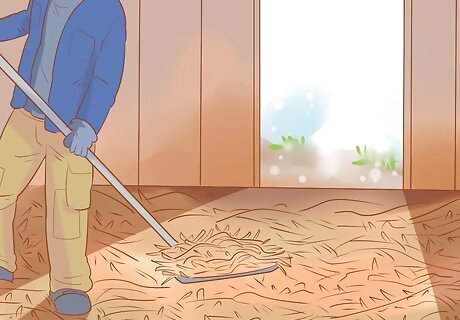
Lay down straw or hay to protect ducks from the cold ground. The ground will get cold and snowy in the winter. Lay a thick layer of straw or hay down on the floor your duck's pen. This will prevent their feet from becoming cold. You can also lay wooden boards down in the pen to keep the ducks warm.
Feeding Your Ducks
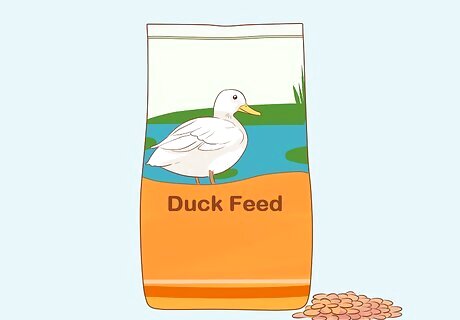
Give the ducks duck feed with proper amounts of protein. You will need to feed your ducks the proper diet throughout the year. In the winter especially, however, ducks need nutrients to thrive despite the cold. You can purchase duck feed at a local pet store or online. Protein is vital to a duck's health. Check the protein percentages on the duck food you choose. The protein content should be between 16 and 18%.

Provide greens to supplement their diet. Ducks generally eat bugs in the ground to supplement their diet. They may also eat grass and other plants. As bugs and grass may be more difficult to find in the winter, give your ducks extra treats like fruits, vegetables, corn, and greens. Good greens for ducks include things like kale, cabbage, and chard.

Give ducks high-fat, high-calorie treats before bedtime. The temperature will become very cold overnight. Digestion can help ducks stay warm. High-fat, high-calorie treats will take more effort to digest, warming up a duck during nighttime. Peanuts and corn are good options here. Peanuts are a lot more healthy than corn, so opt for peanuts when possible.
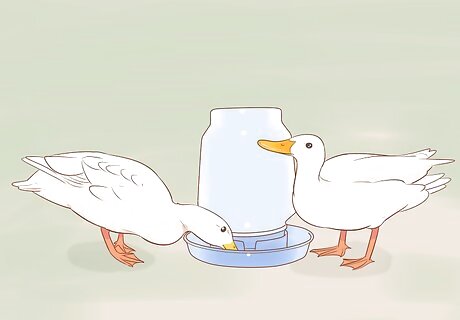
Make sure your ducks have access to fresh water. Keep a bowl of fresh water out for your ducks at all times. During the winter, keep the water inside the heated shelter so it does not freeze. Check the water each time you check on your ducks. If the water has frozen, or if it has become dirty, replace it right away.
Keeping Your Ducks Safe
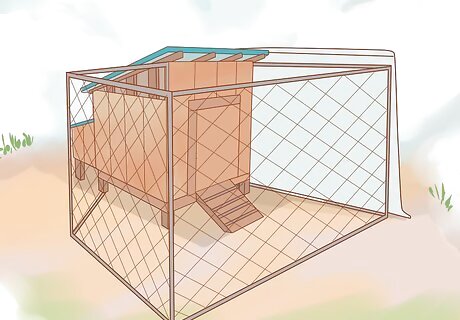
Protect ducks from the wind. Ducks tolerate cold very well, but tend to dislike wind. Make sure your ducks have some protection from the wind over the winter. This is important to their health and overall well-being. Hang a tarp up in one corner of your duck's pen. If it gets windy, your ducks can shield themselves behind the tarp. You can also purchase a small outdoor wind shelter for your ducks.

Ventilate your ducks' shelter properly. When they breathe, ducks tend to emit a lot of moisture. This can cause health conditions, such as frostbite, in the winter. A duck shelter should never be completely closed off from outside air. Keep some air vents in the shelter. You can use mesh material on some parts of the shelter, or install small windows. In order to protect your ducks from the cold and from predators, vents should always be up high. Do not install any air vents on ground level.
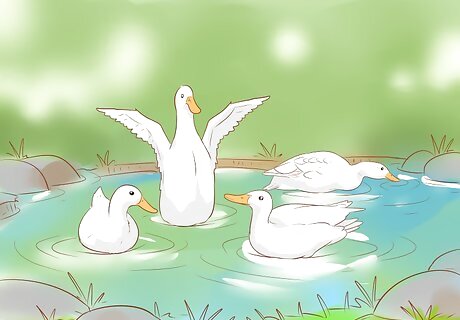
Allow your ducks to bathe on sunny days. Ducks enjoy swimming, even in the winter. While most ducks can tolerate water at cold temperatures, it's best to err on the side of caution. Wait until a sunnier, warmer day arrives to set out a pool for your ducks. Use a deep, wide pool on warmer days to allow your ducks to swim and bathe.



















Comments
0 comment